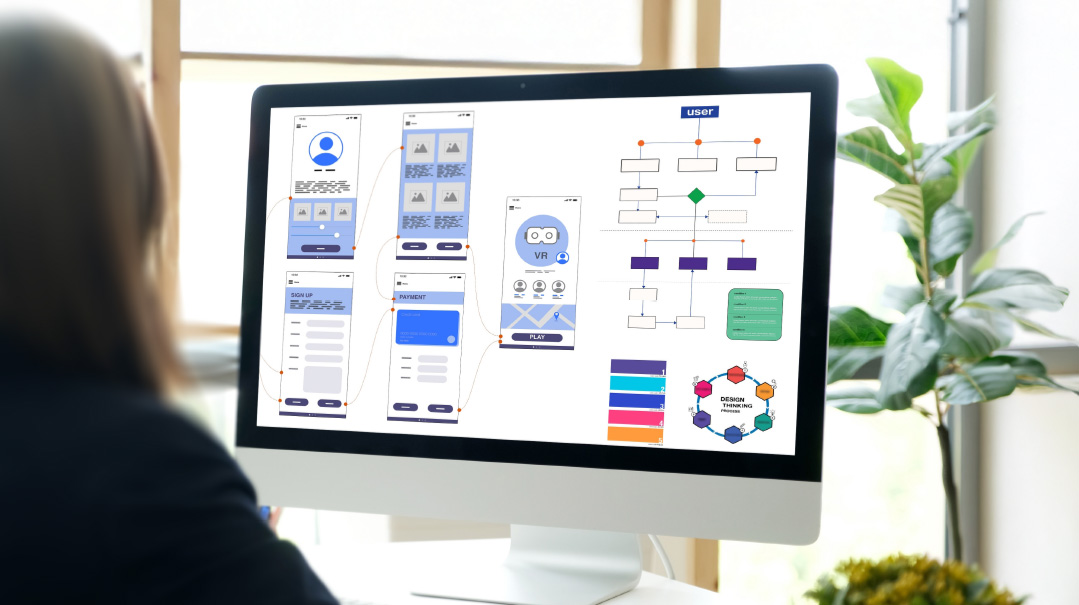So You’re Looking for a Career in … Accounting
| January 29, 2020What are the options out there, and what’s the job really like?

S
o you’re looking for a career in…accounting
How much money can you make? What type of training will it take? And what does the job actually entail? Read on to find out whether this is the job for you
What will I be doing all day?
An accountant, in a nutshell, keeps track of the flow of money through a business, an organization, or an individual’s accounts, ensuring that all records of transactions are accurate and compliant with the law.
While there’s a variety of career paths within the field, as an accountant, you will likely be performing some of the following functions:
- preparing budgets and tracking revenue, expenses, invoices, payroll, and other accounting documents
- maintaining payroll data and processing monthly payrolls
- preparing regular reports of company profits and losses
- analyzing a business’s income and expenditure trends and recommending appropriate budget adjustments
- reviewing company financial statements and resolving accounting discrepancies
- developing and implementing accounting procedures for a company
What’s the difference between a public accountant and a private accountant?
In public accounting, the accountant works for a public accounting firm — the Big Four (the nickname used to refer collectively to the four largest professional services networks in the world, consisting of Deloitte, Ernst & Young, KPMG, and PricewaterhouseCoopers) being the most notable examples — that provides third-party accounting services to businesses. His role includes reviewing the client’s public financial statements and serving in the capacity of auditor, tax advisor, or consultant.
In private accounting, the accountant is employed by a private company to set up and manage internal financial systems and prepare financial statements (which are then reviewed by the public accounting auditor).
Do I have the personality for it?
Some of the traits that make for a good accountant are:
Analytical, attention to details, conscientious, organized, and efficient. They should have strong math skills, good computer skills, and also good interpersonal skills and the ability to collaborate with a team.
What schooling do I need?
To obtain an entry-level job as an accountant or auditor, you need at minimum a bachelor’s degree in accounting, finance, or a related discipline. To become a CPA, which enables you to perform audits, file forms with the Securities and Exchange Commission, and represent clients in matters relating to the IRS, you need to pass all four parts of the CPA exam and accumulate a specific number of hours of working experience.
What can I expect to earn?
Salaries vary based on the type of work and level of experience. Location is a big factor as well. (Salaries in New York, for instance, are 40 percent higher than the national average.) Some median salary ranges, from beginner to more experienced:
Public accounting, tax:
$50,000 – $170,000+
Public accounting, auditor:
$50,000 – $150,000+
CPA working for the IRS:
$60,000 – $115,000 (plus great benefits)
TALES FROM THE TRENCHES
THREE accountants DESCRIBE THE HIGHLIGHTS AND THE CHALLENGES
R. Halberstam of South Florida
- CPA at a small accounting firm
- Graduated from TTI & COPE Accounting Program 2016
My typical day at work
As a CPA at a small accounting firm, I provide tax, audit, and consulting services to clients.
The difference between working for a big firm and a small firm
As someone who used to work at a larger New York firm before moving to Florida, I’ve seen the difference firsthand. In a big firm, work procedures are much more standardized. Because there are so many employees, each accountant tends to specialize in one particular area, and after a while, the work you do can start to feel like you’re following a script. In a smaller firm, you get involved in the entire gamut of the job, serving the full range of your clients’ needs — which makes things much more interesting.
I chose the field of accounting because
I wanted to set myself up for a career that could support my family. I found that an accounting degree from TTI/COPE is a well-rounded business degree that opens up many doors to a wide variety of industries. That means if you have a solid accounting background, then you’re trained to handle the financial aspect of a business. Many accounting graduates take this knowledge and go on to work in the financial industry, or in any business where accounting skills are an asset — which is pretty much any business. From my graduating class, people went on to work in financial companies, the nursing home industry, and more. For myself, I felt public accounting was the best option, mainly because it offered a stable income with good earning potential.
Accountants have a reputation of being boring, but in reality
The job is very exciting and dynamic. They typically have a hand in many aspects of a business, and the job involves a lot of out-of-the-box thinking. You’re never presented with the same problem twice — every client brings with him his own unique set of circumstances, and you need to approach each problem creatively in order to achieve the optimal results for your client, while staying within the rules and regulations.
As an aside, while it’s popular to label accounting firms as working around the law to get their clients tax breaks, this is absolutely not true. No reputable accounting firm will do something illegal. The creativity is to work within the law to achieve good results for your client.
What I love most about the field is
The wide variety of industries you can work with, and the new responsibilities and skills you acquire with each new client.
What I find most challenging about the field is
Staying current amid the constantly changing rules and regulations, and finding suitable candidates for open positions. Currently, the entire accounting industry has a serious staffing shortage throughout the country. They’re desperate for people. This is partially a result of the new tax laws, which have placed a greater demand on both accountants and auditors, and partly because, as the baby boomer generation retires, they’re leaving behind an employment gap.
My advice for people starting out is
When looking for a first job, focus on the end goal. Consider where you want to end up, rather than on the immediate rewards.
Tzvi Zicherman of Lakewood, NJ
- Managing Partner at LTC Finance and Advisory Services
- Graduated from Professional Career Services (PCS) Masters Accounting Program 2007
My typical day at work
My typical day at work today is vastly different from how it was the first few years of my accounting career. My day used to mean working diligently with numbers and reporting, including tax return preparation, working through audit work papers, and eventually, managing other accountants working on these reports.
Today I’m running a growing financial services business that is one of the LTC Consulting Services companies. Most of my day is spent on building client relations, strategic planning, internal budgeting, dealing with employee satisfaction and due diligence/underwriting discussions with those looking to invest in or acquire nursing homes.
I chose the field of accounting because
1) Accounting is a considered a secure career choice, whether you choose to stay in public accounting or use it as a foundation to branch out into the business world.
2) PCS was offering (and still does) a course that provides the gold standard master’s degree in accounting through Farleigh Dickinson University – which was, conveniently, right at my doorstep in Lakewood.
3) Accounting is the language of business. It’s a great way to learn and understand the key drivers of business and investments.
4) It’s a career I feel is aligned with my personal strengths.
Accountants have a reputation of being boring, but in reality
Accountants are typically diligent individuals who are comfortable putting in the necessary time needed to complete their tasks. True, they aren’t your stereotypical hustling salesman personality, but the field has so many different routes one can take. Most of the successful accountants I know actually have great communication skills and are not as boring as their reputation makes them out to be.
What I love most about the field is
It provides many opportunities to bring real value to individuals and to their businesses.
What I find most challenging about the field is
My biggest challenge — and I share this challenge with many growing companies — is staffing! We’re a growing business constantly looking for strong accounting staff in a highly competitive environment. The good news is that it’s a great time to be training as an accountant! There are a lot of employment opportunities available in the field.
My advice for people starting out is
Go out and aggressively look for internship or starting job opportunities that will help you build your technical accounting and technology skills, as well as soft skills such as communication. Many people have just a small window of time to look for opportunities that build their “toolbox.” Maximize that time. And don’t be shy about reaching out to those experienced in the field for help and advice. Klal Yisrael is blessed with an amazing network of people who are happy to help. Don’t be afraid to tap into that resource!
Rebecca Backman of Brooklyn, NY
- SEP Revenue Agent at the IRS
- Graduated from Touro College Accounting Program 2009
A typical day at work looks like
As a revenue agent for the IRS, I audit tax returns and examine them to see if everything has been accurately reported. This includes a process of pre-audit and an interview with the taxpayer or their representative (his CPA, lawyer, etc.) — which frequently involves traveling to meet with them in person. I examine the documentation that they offer to support the items reported on their tax returns, and I also determine if there’s any unreported income omitted from the tax return.
On a typical day, I’m assigned an inventory of tax returns and travel to the location of the audit examination. Other times I work at the IRS office in Manhattan, and several days a week I’m able to telework at my home, which saves travel time and is very convenient.
I chose the field of accounting because
I was a single mother of three daughters who’d been working as a bookkeeper at the same company for over 20 years. When my youngest daughter was ten, I made the decision to go back to school to better our lifestyle. Accounting seemed the logical next step after bookkeeping, so I enrolled in Touro College’s accounting program. After just one semester, I already knew I’d made the right choice.
Toward the end of my fourth year, I attended a career fair, and wrote my name down anywhere I saw the word “Accounting” in the job description. I was really worried that, due to my age, I wouldn’t be hired for any jobs, but thankfully, that wasn’t the case — I began my career at a small Wall Street firm, because I had a good grasp of QuickBooks from my bookkeeping days. After only a couple of months, the IRS reached out from our meeting at the career fair and I was hired.
Accountants have a reputation of being boring, but in reality
I’ve definitely not found this to be the case! Learning new skills and subjects within the field is exciting and rewarding. There’s so much variety within accounting that each person can find his own niche. And whether you’re running your own business or are employed in an agency, social interaction plays an integral role in advancing in your career.
In addition, working at the IRS brings its own share of interesting experiences. For example, there was the time I audited a taxpayer and discovered that his tax preparer had been stealing his refunds for over 20 years! Further investigation revealed that this tax preparer had a whole method for cheating the government: He’d give his clients a copy of their regular tax return, but on the return that he actually submitted, he added a Schedule A with additional charity, mortgage interest, real estate taxes and other expenses to produce a larger refund. He then submitted a form attached to the return, requesting the IRS split the refund – so that he could pocket the additional refund amount. He did this over 100 times a year. I referred the case to our criminal investigation division, and he was indicted and served time in prison.
What I love most about the field is
The ability to find your specialty. For me, personally, I discovered as I worked on my cases that I naturally gravitated to the area of fraud. I therefore enrolled in a certificate program in Forensic Accounting and Fraud Examination offered at Baruch College. But I felt I’d only scratched the surface and I wanted more in-depth study, so I decided to pursue a master’s degree in accounting with a concentration in Forensic Accounting and Fraud Examination. I then took and passed the four-part exam and became a licensed CFE (Certified Fraud Examiner).
What I find most challenging about the field is
Managing the time I work on each case and keeping track of how much time I spend each day on a given case.
My advice for people starting out is
Understanding that it takes time to adjust. Any new job requires time and effort to get acclimated — to get used to the new environment and learn the new skills required to successfully perform your work. You need time to meet your supervisor and learn how to get along with the members of your group, to learn how things function in your workplace. So be patient and give yourself that time. —
(Originally featured in Mishpacha, Issue 796)
Oops! We could not locate your form.













